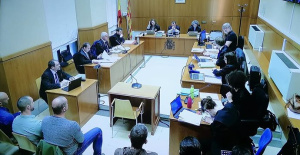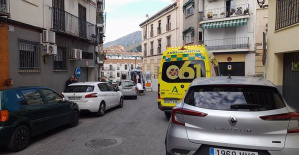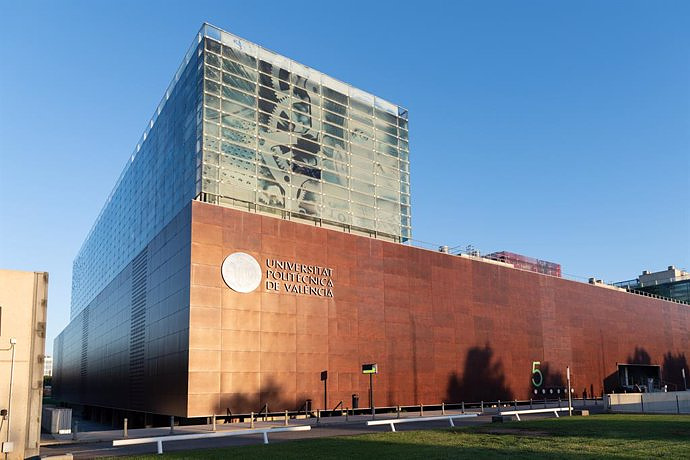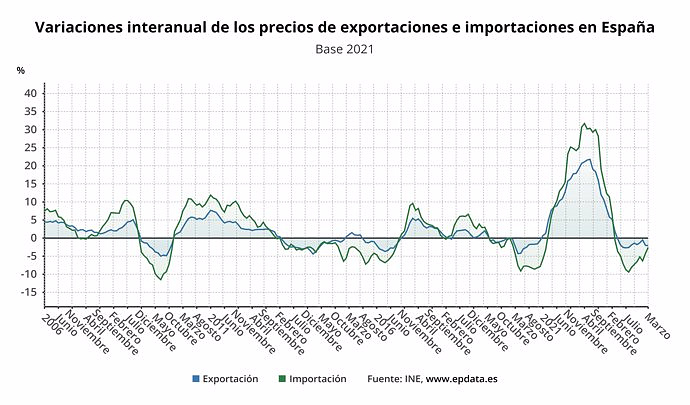VALENCIA, 7 Mar. (EUROPA PRESS) -
A team coordinated by Professor Ana Anquela from the Universitat Politècnica de València (UPV) has developed a geoportal that includes data on the perception of insecurity to prevent gender violence in urban public spaces in five cities around the world, and València, "a very safe," he has served as a pilot.
The project, called Criteria Taronja, has called on UPV students to contribute their experiences of insecurity in public spaces, on the occasion of Women's Day. This Thursday they will participate in a 'mapathon', based on participatory cartography, in which those invited will point out points on the map of Valencia where they have felt a sense of insecurity, street harassment or both.
This initiative of the Geospatial Technologies Research Group of the Polytechnic University of Valencia is subsidized by the Department of Innovation, Universities, Science and Digital Society of the Generalitat Valenciana and is being developed in four cities: Valencia (where the pilot project is carried out) , Dublin (Ireland), Sofia (Bulgaria), Toluca (Mexico) and San Francisco (United States).
"From the information we have, València is a very safe city, which contrasts with Toluca (Mexico), where students are reporting abundant experiences of feelings of insecurity or street harassment near the university campus," explained Ana Anquela.
In general, the project seeks to know in which public spaces in cities women feel unsafe or experience attacks, to improve policies against gender violence, specifically that carried out by men who do not know the victim.
To do this, different layers of data from all cities are compared, from participatory mapping to analysis of sentiments expressed on social networks, including real estate, traffic, and socioeconomic and educational level data.
As Anquela explained, Europe has an open data policy that facilitates the modeling of the perception of security, through quantitative information on infrastructure, socioeconomics, real-time traffic, among others. "However, crime data is restricted, so we have had to request it," she said.
In the United States, on the other hand, data protection policies are more relaxed and the geolocation of crimes is available to citizens.
Finally, in Toluca, "to generate indispensable data sets, it is necessary to intensify the collection of information through citizen science, either through sentiment analysis in social network data, the participation of voluntary groups that report on episodes of violence street violence or feelings of insecurity in public spaces, through Mapathons, or using computer techniques such as web scraping (automatic collection of data from web pages)".
The final result will be an interactive web portal, a geoportal, in which the insecurity situation in each city can be known in real time, as well as its evolution over time. The tool will provide information to decision makers, so that they can deploy more efficient measures and evaluate their results.
The UPV has called on the university community, with special emphasis on the group of female students, to contribute their experiences of insecurity in public spaces in Valencia through an application. This Mapatón (meeting to map an area) took place on Thursday, March 7, within the framework of the activities planned for UPV Women's Day.
Data collection on the experience of insecurity is carried out through citizen science software. This is an application in which users can locate on a map the places where they have been subjected to sexual harassment or have felt afraid (and what caused it).
The Geospatial Technologies Research Group of the UPV has had the collaboration of expert personnel in equality to determine the parameters that contribute to the feeling of security and its relative weight. Interdisciplinary cooperation has also made it possible to establish which behaviors cause a feeling of insecurity in women, such as being followed by a stranger, exhibitionism or expressions of sexual content.
Criteria Taronja has a planned completion date of December 2024, although the Group wants to continue investigating after the date. "The project presents many dimensions that we want to continue delving into," Anquela stressed. The project is designed to be used by managers, she specified, and stressed that the objective is not to generate alarm about a certain area.
According to the United Nations, sexual harassment and other forms of sexual violence in public spaces are a daily problem that women and girls face in all countries of the world. This reduces their opportunities to access education, employment, leisure or public participation and negatively affects their well-being and health.
Anquela explained that Criteria Taronja "acts in the prevention of street gender violence, in cases where the aggressor and victim have no prior relationship." Thus, it contributes to Sustainable Development Goal 5 of the UN Agenda 2030: Achieve gender equality and empower all women and girls.

 Exploring Cardano: Inner Workings and Advantages of this Cryptocurrency
Exploring Cardano: Inner Workings and Advantages of this Cryptocurrency Seville.- Economy.- Innova.- STSA inaugurates its new painting and sealing hangar in San Pablo, for 18 million
Seville.- Economy.- Innova.- STSA inaugurates its new painting and sealing hangar in San Pablo, for 18 million Innova.- More than 300 volunteers join the Andalucía Compromiso Digital network in one month to facilitate access to ICT
Innova.- More than 300 volunteers join the Andalucía Compromiso Digital network in one month to facilitate access to ICT Innova.-AMP.- Ayesa acquires 51% of Sadiel, which will create new technological engineering products and expand markets
Innova.-AMP.- Ayesa acquires 51% of Sadiel, which will create new technological engineering products and expand markets Sentences of up to 7 years for four police officers for illegal detention and injuries to a young man in Barcelona
Sentences of up to 7 years for four police officers for illegal detention and injuries to a young man in Barcelona They investigate in Jaén the death of a six-year-old boy whose mother shows signs of self-harm
They investigate in Jaén the death of a six-year-old boy whose mother shows signs of self-harm The judge orders Rubiales to appear in court once a month and ask for permission if he travels abroad
The judge orders Rubiales to appear in court once a month and ask for permission if he travels abroad Scotland's First Minister resigns after the breakdown of the Government coalition
Scotland's First Minister resigns after the breakdown of the Government coalition How Blockchain in being used to shape the future
How Blockchain in being used to shape the future Not just BTC and ETH: Here Are Some More Interesting Coins Worth Focusing on
Not just BTC and ETH: Here Are Some More Interesting Coins Worth Focusing on They create a bank of machinery sounds to prevent breakdowns through artificial intelligence
They create a bank of machinery sounds to prevent breakdowns through artificial intelligence UPV students build a prototype of a wooden house to move to Equatorial Guinea
UPV students build a prototype of a wooden house to move to Equatorial Guinea The UA opens the call for the Impulso 2024 Awards for the best innovative business initiatives
The UA opens the call for the Impulso 2024 Awards for the best innovative business initiatives ALI, virtual assistant from Alicante, internationally recognized by the OECD
ALI, virtual assistant from Alicante, internationally recognized by the OECD A million people demonstrate in France against Macron's pension reform
A million people demonstrate in France against Macron's pension reform Russia launches several missiles against "critical infrastructure" in the city of Zaporizhia
Russia launches several missiles against "critical infrastructure" in the city of Zaporizhia A "procession" remembers the dead of the Calabria shipwreck as bodies continue to wash up on the shore
A "procession" remembers the dead of the Calabria shipwreck as bodies continue to wash up on the shore Prison sentences handed down for three prominent Hong Kong pro-democracy activists
Prison sentences handed down for three prominent Hong Kong pro-democracy activists ETH continues to leave trading platforms, Ethereum balance on exchanges lowest in 3 years
ETH continues to leave trading platforms, Ethereum balance on exchanges lowest in 3 years Investors invest $450 million in Consensys, Ethereum incubator now valued at $7 billion
Investors invest $450 million in Consensys, Ethereum incubator now valued at $7 billion Alchemy Integrates Ethereum L2 Product Starknet to Enhance Web3 Scalability at a Price 100x Lower Than L1 Fees
Alchemy Integrates Ethereum L2 Product Starknet to Enhance Web3 Scalability at a Price 100x Lower Than L1 Fees Mining Report: Bitcoin's Electricity Consumption Declines by 25% in Q1 2022
Mining Report: Bitcoin's Electricity Consumption Declines by 25% in Q1 2022 Oil-to-Bitcoin Mining Firm Crusoe Energy Systems Raised $505 Million
Oil-to-Bitcoin Mining Firm Crusoe Energy Systems Raised $505 Million Microbt reveals the latest Bitcoin mining rigs -- Machines produce up to 126 TH/s with custom 5nm chip design
Microbt reveals the latest Bitcoin mining rigs -- Machines produce up to 126 TH/s with custom 5nm chip design Bitcoin's Mining Difficulty Hits a Lifetime High, With More Than 90% of BTC Supply Issued
Bitcoin's Mining Difficulty Hits a Lifetime High, With More Than 90% of BTC Supply Issued The Biggest Movers are Near, EOS, and RUNE during Friday's Selloff
The Biggest Movers are Near, EOS, and RUNE during Friday's Selloff Global Markets Spooked by a Hawkish Fed and Covid, Stocks and Crypto Gain After Musk Buys Twitter
Global Markets Spooked by a Hawkish Fed and Covid, Stocks and Crypto Gain After Musk Buys Twitter Bitso to offset carbon emissions from the Trading Platform's ERC20, ETH, and BTC Transactions
Bitso to offset carbon emissions from the Trading Platform's ERC20, ETH, and BTC Transactions Draftkings Announces 2022 College Hoops NFT Selection for March Madness
Draftkings Announces 2022 College Hoops NFT Selection for March Madness























